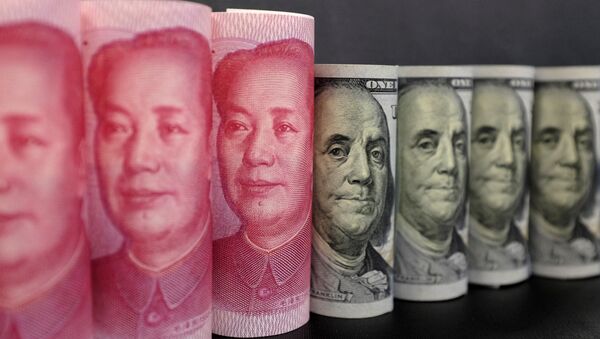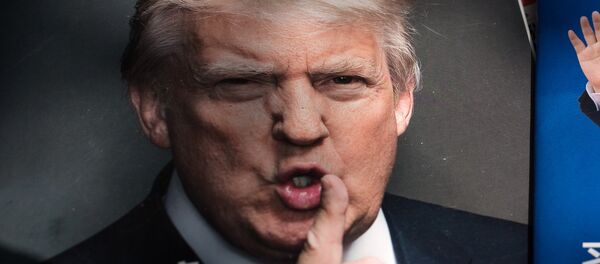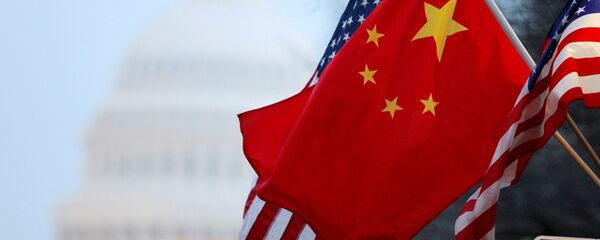Citing sources from the US administration, the outlet suggested that a final decision on the possible punitive measures, including trade restrictions, is "expected as soon as this week."
President Trump had tweeted earlier that he is "very disappointed in China."
I am very disappointed in China. Our foolish past leaders have allowed them to make hundreds of billions of dollars a year in trade, yet…
— Donald J. Trump (@realDonaldTrump) 29 июля 2017 г.
"Our foolish past leaders have allowed them to make hundreds of billions of dollars a year in trade, yet," said one of his tweets, while another lamented that China is doing "NOTHING for us with North Korea, just talk[s]. We will no longer allow this to continue. China could easily solve this problem!"
…they do NOTHING for us with North Korea, just talk. We will no longer allow this to continue. China could easily solve this problem!
— Donald J. Trump (@realDonaldTrump) 29 июля 2017 г.
Also on Monday, China called on the US to refrain from discussing the settlement of the North Korean nuclear issue within the context of Chinese-US bilateral trade.
"We believe that the nuclear issue on the Korean Peninsula and China-US trade relations are the issues that are in two completely different domains, it is inappropriate to discuss them together," Chinese Vice Minister of Commerce Qian Keming said at a press briefing.
Qian noted the significant benefits that both China and the United States gain from bilateral trade.
Russian political analysts reviewed what the real aim of the US is in Asia, what it is able to do to harm the "world's factory" and how China is able to respond to it.
"I am sure that the US worked out a set of punitive anti-China measures long ago, however it still remains to be seen if Washington is ready to introduce them," Alexei Maslov, head of the School for Oriental Studies at the Russian Higher School of Economics University told Sputnik.
He further explained that with President Trump in power, the US has no stable and well thought-out strategy regarding China. This strategy has been "skipping from side to side": from the fiercest criticism of China and blaming it for all US troubles to a rather friendly meeting between Donald Trump and Xi Jinping.
"Current Trump's accusations of Beijing of 'not doing enough to stop North Korea from building a nuclear weapon' resemble a childish grudge," the political analyst told Sputnik.
"First of all, this could be a standard trade embargo on the supply of certain goods. It is hard to name the exact types of goods, but it could be up to seven or eight basic positions," the political analyst told Russia's online newspaper Vzglyad.
An embargo or trade duties could be introduced on any import from China, from textiles to any equipment, he specified.
He also did not rule out the possible freezing of Chinese transactions on the territory of the US and cutting off of financing of joint economic programs.
However, China, he said, is able to respond to the US.
"We should understand that the economies of China and US are very intertwined and China has quite a large variety of measures to respond with. It could cut off supplies of important goods or squeeze the US capital out of Asian markets," he said.
China, he noted, is gradually developing anti-American propaganda and is eager to demonstrate to its partners in One Belt, One Road project that the US is an unreliable partner which is not acting through negotiations and discussions but purely by using different threats.
"China could sell out some of them to send a message to the US that it could easily rain down on the system," he told the newspaper.
Alexei Maslov meanwhile explained to Sputnik what might be the real aim of the US.
"I think that the politicians in Washington, who are well aware of the relationship between China and North Korea, understand only too well that they are demanding the impossible from Beijing. However they are using this situation to exert pressure on China to demonstrate that it can't solve such problems. In other words, they want to diminish China's role in the region," he concluded.







